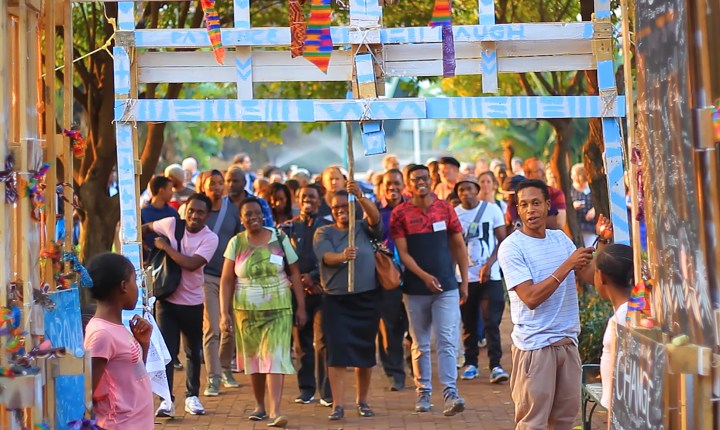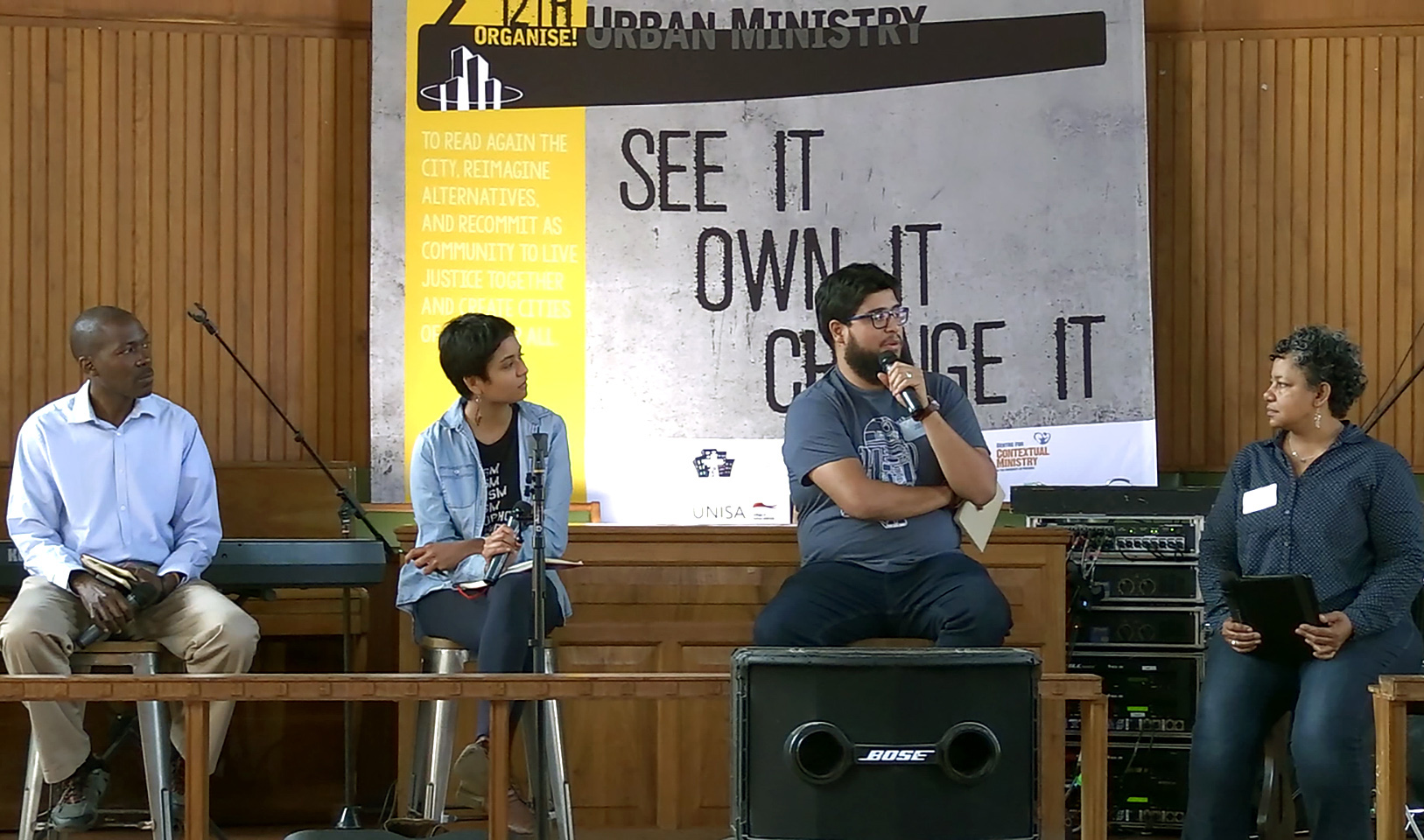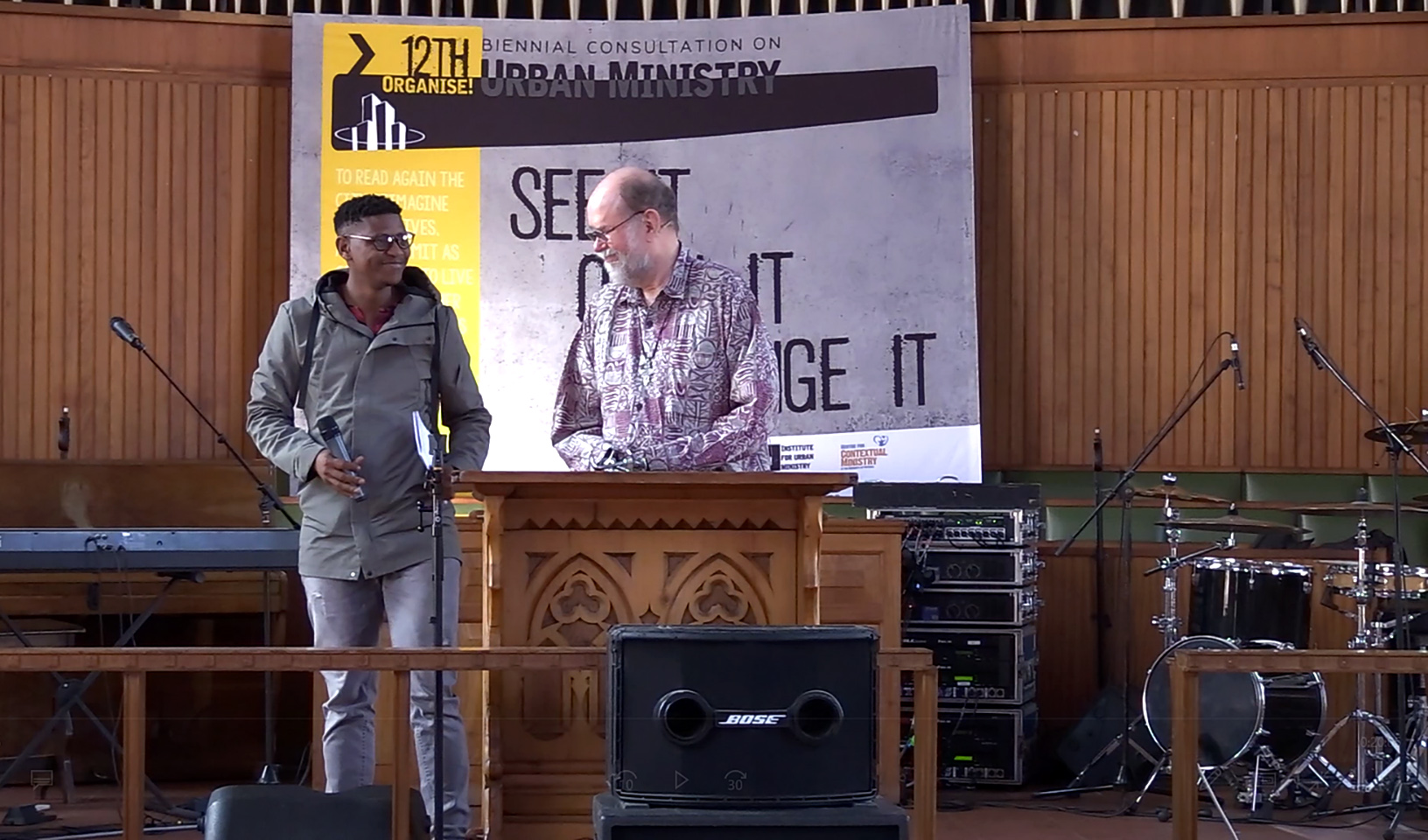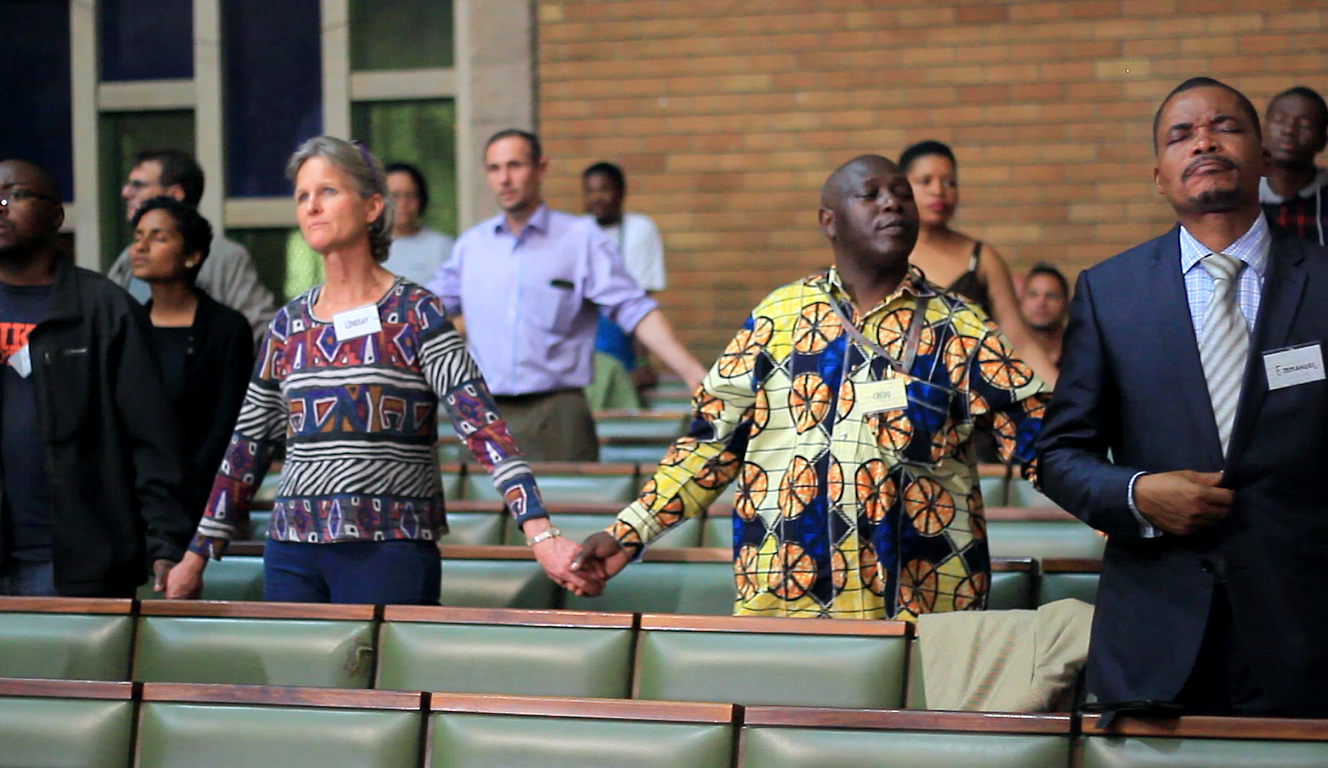EVERYDAY CHANGEMAKERS OP-ED
A celebration of the courageous citizens whose acts transform despair into hope

The 2022 Biennial Consultation on Urban Ministry will focus on the theme of Everyday Changemakers, considering how urban crises, injustices and brokenness can be transformed into hopeful alternatives by the small or big acts of courageous citizens.
The Covid-19 pandemic has been a time of trauma, loss and grief for people and communities around the globe and has deeply altered the ways in which we relate to one another.
It has also become a time rich with grace and generosity.
The most vulnerable people in our cities and towns often became more visible, as they had fewer options to practise physical distancing or to isolate themselves. Some of those previously overlooked and unnoticed were understood to be essential-services workers. In spite of serious disruption, and often prompted by it, everyday people stepped up to care for their neighbours and cities, motivated by mutual concern and commitment to see and honour each others’ humanity.

The 2018 Urban Consultation included panelists from around South Africa and the world, including (from left) Gideon Ochieng (Nairobi), Sarita Pillay Gonzalez (Johannesburg), Rev Joel Aguilar (Guatemala City), and Rev René August (Cape Town).
(Photo: Supplied by Jennifer Lee, Institute for Urban Ministry)
In the face of huge uncertainty, these everyday changemakers emerged to create pathways of subversion, creativity and sustainability. Pockets of transformation occurred in cities all over the world, sometimes short-lived, but often replicated and formalised for a time beyond the pandemic.
The Biennial Consultation on Urban Ministry
The Biennial Consultation on Urban Ministry has brought faith- and community-based urban workers together since 1996. It is a space for dialogue and discovery, in which people who are committed to making urban change — mediating healing, justice and access to appropriate infrastructure — can share stories, exchange lessons learned, pause and reflect, and be open to fresh inspiration for the difficult journeys ahead.
Now in its 14th iteration, the 2022 Urban Consultation will focus on the theme of Everyday Changemakers, considering how urban crises, injustices and brokenness can be transformed into hopeful alternatives by the small or big acts of courageous citizens. Participants will be faith- and community-based workers, ministry and religious leaders, urban researchers, activists and ordinary people dreaming of extraordinary urban possibilities.
From 24 to 26 August, the Institute for Urban Ministry, with its partner institutions, will gather 200-250 people to mindfully reflect on how (South) African cities are changing, whilst discerning where efforts are implemented that help overcome urban challenges subversively, creatively, and sustainably — every day.
The consultation will showcase innovative interventions that transformed hopelessness into daring imaginaries of hope. It will include narratives from cities as diverse as Cape Town and Bujumbura, Tshwane and Lagos, Johannesburg and Nairobi.

MC Sello Mmane introduces Father Michael Lapsley as a keynote speaker at the 2018 Urban Consultation. (Photo: Supplied by Jennifer Lee, Institute for Urban Ministry)
It is an opportunity to join a diverse community of practitioners remaking urban spaces for flourishing communities.
A call to ordinary local activism
In South Africa, the past naïve optimism of a rainbow nation facilitated by the government and invested in by business has been replaced by cynicism, anger and frustration. And yet, where people have taken ownership and practised agency, in spite of the self-serving power practised by their elected leaders, they have often succeeded in incubating new forms of citizenship, galvanising local assets for the good of everyone.
Whether it is the Water Heroes of Harrismith, reclaiming the town’s water purification system from corrupt municipal officials, or the young leaders of Thandanani Drop Inn Centre in Mamelodi restoring people, streets and neighbourhoods to wholeness, or Khayelitsha’s Church of the Nazarene mobilising community members to protect each others’ health at the height of the Covid pandemic — we have borne witness to beautiful acts of creative, sustainable subversion.
Whether it is small inner-city churches making their land available for affordable housing and creative care, or resilient informal urban dwellers across the continent carving out lives in the daily face of death, or guerilla gardeners of urban townships proclaiming that “food is free”, thousands of everyday changemakers contribute to the urban landscape in ways that affirm and celebrate life and resist death.
Visit Daily Maverick’s home page for more news, analysis and investigations
These are the unsung heroes of our cities and towns who must be honoured and supported, whose stories must be broadcast widely.
Lasting change has always come from below, facilitated by those most affected by everyday evils. Today we are presented with an opportunity, collectively, to follow the lead of these everyday changemakers.
Let us refuse to outsource our cities, towns, and neighbourhoods to unreliable politicians.
Let us resist narratives that suggest business or those with money have the solutions to our greatest problems.
Let us rather assert the knowledge, visions and assets of local communities and ordinary people able to make extraordinary change.

Participants at the 2018 Urban Consultation at a musical worship.
(Photo: Supplied by Jennifer Lee, Institute for Urban Ministry)
Changemaking should come from within communities, catalysed by neighbours, citizens and people of faith. Local faith and religious gatherings must become platforms from which communities are organised, leaders called to account, and multiple responses to urban poverty, violence, exclusion and injustice are incubated. Churches, mosques, temples and faith-based organisations must reimagine how to repurpose their land and property in service of the poor and marginalised. The gap between resources and vulnerability must be bridged by ensuring access to healthcare, education, recreation and employment.
Why wait for external saviours when we can do it for ourselves, from within?
Those of us with more resources — business, wealthy individuals, resourceful people of faith, universities and institutions of higher learning, professional sportspeople and the like — must cease to soothe our consciences through charitable handouts that maintain the status quo. Instead, we must recognise where local agents of change make an incredible difference and then follow their leadership, becoming their long-term partners to support sustainable change that is measurable and real.
Making the city our home
The 2022 Urban Consultation is embedded in the annual Feast of the Clowns, celebrated since 2000 in the City of Tshwane. It is a joyous festival that builds community while creating awareness of social justice concerns.
This year, the focus of the Feast of the Clowns is on “making home”, and together the consultation and feast lift up everyday changemakers, making their cities home for all who live in them.
On a continent where 62% of urban dwellers live in informal housing, and in cities where homelessness and precarious housing are rife, everyday changemakers must also consider being home-makers: ensuring safe, secure, happy, viable and sustainable spaces in which people can belong and make meaning, create memories and thrive.
The time is now to register for the consultation and to diarise the feast. These events celebrate everyday changemakers and invite all of us to offer our own resources, expertise, hearts and hands to change the spaces we occupy.
Change is now. Change comes from within. Change starts with us. DM/MC
Stephan de Beer is director of the Centre for Faith and Community at the University of Pretoria. Jennifer Lee is the operations manager and interim director at the Institute for Urban Ministry.
Registration details for the 14th Biennial Consultation on Urban Ministry: Everyday Changemakers can be found on Facebook and Instagram. The Feast of the Clowns runs from 15 to 27 August (Facebook and Instagram for more info).




















 Become an Insider
Become an Insider
Comments - Please login in order to comment.